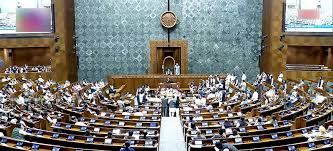Kashmir historian blames India for committing ‘memoricide’ in disputed IIOJK
#KashmirisRightToSelfDetermination

Srinagar: Kashmiri historian Hafsa Kanjwal has blamed India for committing “memoricide” and repression in the disputed territory of Indian illegally occupied Jammu and Kashmir.
According to Kashmir Media Service, in a media interview, Kanjwal said that India is trying to erase the history of the Kashmiri struggle for self-determination and to suppress dissent in the region.
“India has always tried to domesticate what was always an international issue,” Kanjwal said. “It’s completely rewriting that entire history, engaging in something that Kashmiri scholars have called memoricide.”
Memoricide is referred to the destruction of the memory, extermination of the past of targeted people.
Kanjwal said that the Indian government is using various tactics to suppress dissent in Kashmir, including arbitrary arrests, detentions, and internet shutdowns. She also said that the government is trying to change the demographics of Kashmir by allowing Indian settlers to move into the territory.
“So Kashmiri Muslims face an immense dispossession of their land and their resources and the demographic threat now of being made into a minority,” Kanjwal said. “And once that happens, then the calls that Kashmiris have been making for all of these decades for self-determination will be rendered obsolete.”
Kanjwal said that the international community has not done enough to hold India accountable for its actions in Kashmir. She said that there is a lack of political will to address the issue, as countries are more interested in using India as a bulwark against China.
“We are kind of held hostage by the international community and unable to think about ways beyond what we see now with what people are doing for Gaza in terms of popular mobilizations and disruptions,” Kanjwal said.
Kanjwal said that despite the repression, the Kashmiri people have not given up their struggle for self-determination. She said that there is a new generation of Kashmiris who are learning about their history and who are committed to continuing the fight for freedom.
“So it’s hard to say what will happen, what people will do,” Kanjwal said. “But for sure, this is like a period of quiet, perhaps reflection. When there are these structures that are so oppressive, the structures themselves enable some kind of resistance, whether it will happen now, or it will happen five years from now. We don’t necessarily know. But it’s very hard for people to keep up with this level of oppression.”
“There were different human rights organisations like Amnesty International, which represents freedom of the press like the Committee to Protect Journalists and so on, that have issued statements. The UN Special Rapporteurs have issued several statements, especially around the arrests of human rights defenders and the kind of clampdown on the Jammu Kashmir Coalition of Civil Society and other organisations. This outcry has happened, but it’s not been able to be taken forward. And I think, as we can tell from what’s happening in Gaza today, this thing called the international community in many ways further subjugates occupied peoples instead of doing anything substantial,” Kanjwal said.
Kanjwal’s comments come as India continues to face international criticism for its human rights record in Kashmir. The United Nations has repeatedly called on India to respect the rights of Kashmiris and to allow them to exercise their right to self-determination.








